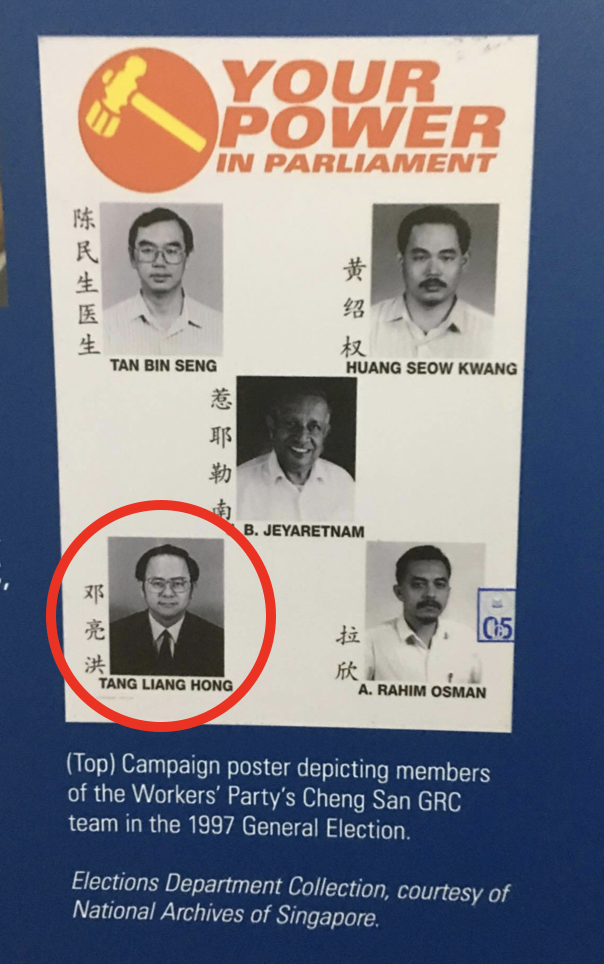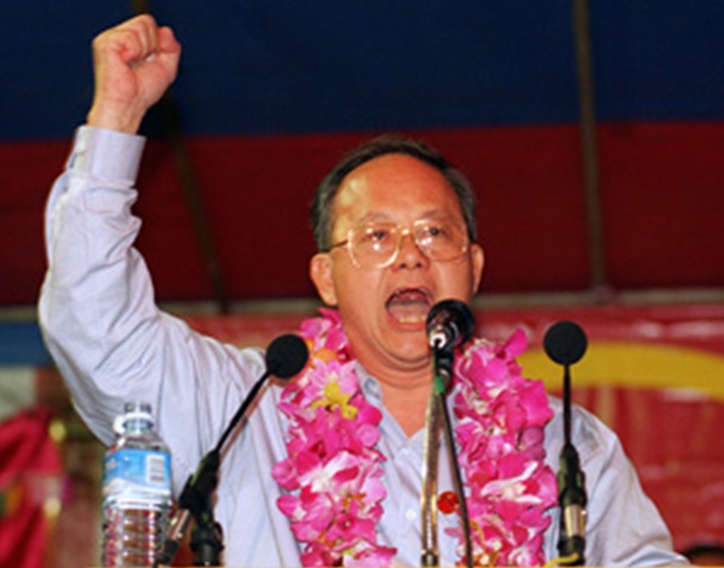"Sue until your pants drop", was the colourful phrase coined by Workers' Party (WP) Secretary-General Low Thia Khiang during the parliamentary debate over the House at Oxley Road on July 4, 2017.
He had responded to Emeritus Senior Minister Goh Chok Tong's speech on how he handled the Hotel Properties Limited (HPL) case in 1996. It involved then-Senior Minister Lee Kuan Yew and then-Deputy Prime Minister Lee Hsien Loong, which was resolved conclusively with no improprieties found.
Low questioned why PM Lee was not suing his siblings who were making baseless allegations, and got involved in a feisty exchange with Goh.
During the exchange, Low mentioned a long-forgotten political figure -- former WP candidate Tang Liang Hong as an example of how PAP political opponents and critics were sued for less serious allegations.
And Goh followed up with a mic drop of his own for Low in response, which has now become one of the favourite internet rejoinders online :
[related_story]"I will be very brief. The response by Low Thia Khiang is not unexpected. I expected that, this is what we call political sophistry.
And as for Tang Liang Hong. He is not my brother." (Emphasis in bold our own)
Who is Tang Liang Hong?
Tang was born in 1935. He may not have been ESM Goh's brother, but he was a brother to seven other siblings.
He first studied at Nanyang University, and then the University of Singapore. He became a lawyer in 1968, and also served as the Chairman of the Nanyang Academy of Fine Arts. In addition, he sat on the board of management of Chinese High School and Hwa Chong JC.
Due to his accomplishments and professional background, Tang was seen as a "star candidate" when he joined the Workers' Party. He would participate in the 1997 General Election as part of the WP team contesting Cheng San GRC, alongside JB Jeyaretnam (JBJ) himself.
 Photo by Chan Cheow Pong.
Photo by Chan Cheow Pong.
In the book The Price of Victory: The 1997 Singapore General Election and Beyond, political academic Derek Da Cunha described WP's decision to contest Cheng San GRC:
"This was an electoral division where the Workers' Party could benefit from a potential spill-over effect from the neighbouring Hougang ward, which was held by the WP's Low Thia Khiang. In its Cheng San team, the Workers' Party also had the benefit of two relatively popular candidates. One of them was WP Secretary-General Mr JB. Jeyaretnam, who campigned with the "spirit of Anson in the air"; this was a reference to the former single-member constituency of Anson, a seat Mr Jeyaretnam had once held.
The other candidate in the WP's Cheng San team who had electoral appeal was lawyer Tang Liang Hong. The PAP's strong reaction to Mr Tang's entry into the contest seemed to merely galvanise the Workers' Party campaign and, paradoxically, appeared to make Mr Tang more popular than he otherwise might have been."
The Battle for Cheng San
Cheng San turned out to be the most hotly-contested constituency in the 1997 GE.
JBJ's five-man team, including Tang, came head to head with a strong PAP team. It included then-Minister for Education Lee Yock Suan and Zainul Abidin Rasheed, the future Senior Minister of State for Foreign Affairs.
This was JBJ's first contest in front-line politics since 1984, as he was barred from taking part in the 1988 and 1991 elections due to a jail term for misreporting his party accounts. As Goh's own ward of Marine Parade was uncontested, he decided to personally campaign in Cheng San GRC, calling himself a "special candidate".
During the campaign, Tang was accused by the PAP to be an anti-Christian Chinese chauvinist.
The WP team eventually lost the contest, securing 45.18% of the vote. Still, as one of the best-performing opposition results, the WP could select one Non-Constituency MP to sit in Parliament, and went with JBJ. However for Tang, his troubles were only beginning.
Multiple lawsuits
Following the 1997 GE, Tang was hit with multiple lawsuits for defamation and tax evasion.
He left Singapore shortly after the election and was ordered in absentia to pay damages totalling S$8,075,000.
Instead of returning to Singapore, Tang eventually entered "self-imposed exile" in Australia, joined by his wife. He was declared a bankrupt and had his property seized for failing to pay the damages and interest that he owed.
Following the hotly contested election of 1997, Cheng San GRC was split and subsumed into three other GRCs for the 2001 general election. Like Tang, Cheng San GRC itself would not be seen in Singapore again.
Related stories:
ESM Goh tells Low Thia Khiang to move on, Low says sorry cannot
ESM Goh Chok Tong welcomes Workers’ Party’s HQ to his GRC with spades of shade
Low Thia Khiang will be the longest-serving opposition MP in Singapore’s history by end of 2017
Workers’ Party’s new HQ on outskirts of Geylang is a modest reflection of where they are now
Parliament was also the platform of choice to address another family-related matter in 1996
Here are some totally unrelated but equally interesting stories:
5 times Singaporeans ownself scared ownself with hoaxes
I let a 20-year-old Tarot card reader inside my mind and it was nothing like I expected
Top image from Alchetron.
If you like what you read, follow us on Facebook, Instagram, Twitter and Telegram to get the latest updates.
